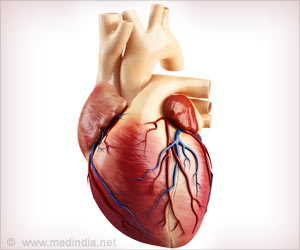Pre menopausal women with higher concentrations of DDT in their visceral fat tissue were more likely to have a greater risk of heart disease.

DDT was one of the first recognized endocrine-disrupting chemicals. DDT and related pesticides are known as environmental estrogen because they can mimic and interfere with the function of the hormone estrogen.
Although DDT was banned in many countries in the 1970s, it remains widespread in the environment and food supply. Diana Teixeira, PhD student, University of Porto, Portugal said, "After the body breaks down DDT along with similar pesticides, chemical remnants called metabolites accumulate in women’s fat tissue."
The body’s natural estrogen has a protective effect on a premenopausal woman’s heart health but, when higher amounts of these environmental estrogens collect in the fat tissue, it can increase the risk of developing cardiovascular disease and inflammation.
The study analyzed the amount of endocrine-disrupting chemicals in fat tissue and blood samples from 121 obese women among which 73 were premenopausal and 48 were postmenopausal. Using the Framingham risk score, the researchers assessed the women’s 10-year risk of developing cardiovascular disease.
"Our findings show that endocrine-disrupting chemicals tend to aggravate complications of obesity, including inflammation and cardiovascular disease risk, in premenopausal women. Measuring environmental estrogen levels may help physicians identify women who are at risk of developing cardiovascular and metabolic disease so they can take preventative action," said Teixeira.
Advertisement















